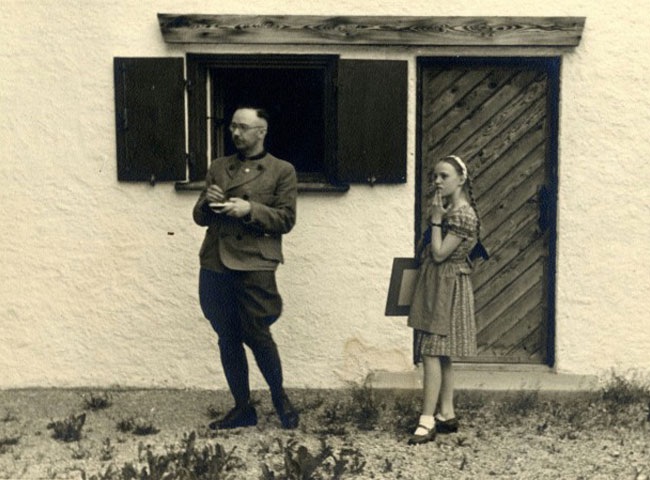Der Anständige
-
Réalisé par Vanessa Lapa • Écrit par Ori Weisbrod, Vanessa Lapa
-
Allemagne, Autriche, Israël • 2014 • 94 minutes • Couleur et Noir & Blanc
- Réalisation :
Vanessa Lapa - Écriture :
Ori Weisbrod, Vanessa Lapa - Image :
Jeremy Portnoi - Son :
Tomer Eliav - Montage :
Noam Amit, Sharon Brook - Musique originale :
Daniel Salomon, Jonathan Sheffer
- Production (structure) :
Realworks - Coproduction :
Medienwerkstatt, Helden der Geschichte UG - Ayant droit :
Realworks
- N° ISAN :
ISAN 0000-0004-A326-0000-U-0000-0000-L
Résumé
Le 6 mai 1945, des soldats de l’armée américaine investissent la maison de Himmler, à Gmund en Allemagne. Ils y découvrent des centaines de lettres personnelles, de journaux intimes et de photos. Le film s’est basé sur ces documents pour esquisser sa biographie et révéler l’état d’esprit, les plans et les secrets du Reichsführer SS, architecte de la Solution Finale : Heinrich Himmler. Comment ce jeune bourgeois catholique, nationaliste de la classe moyenne, est-il devenu le bras droit d’Hitler, responsable de la mort de millions de Juifs, d’homosexuels, de communistes et de Roms ? Comment est née son idéologie ? Comment se voyait-il et comment était-il perçu par sa femme Margerete, sa fille Gudrun et sa maîtresse Hedwig ? Comment un homme qui se référait souvent aux soi-disantes vertus germaniques telles que l’ordre, la correction et le respect, pouvait-il écrire à sa femme en pleine guerre et durant l’Holocauste : "Malgré toute cette charge de travail, je suis en forme et je dors très bien." Comment un homme peut-il se voir comme un héros et être aux yeux du monde un meurtrier de masse
On 6 May 1945, soldiers of the 88th US Infantry Division occupied the Himmlers’ family home in Gmund on Lake Tegernsee where they discovered hundreds of private letters, documents, journals and photographs. The film makes use of these materials and copious archive footage to sketch the biography of SS commander Heinrich Himmler who committed suicide at the end of May 1945 by taking a cyanide capsule. How did this nationalistic lower-middle-class man become Hitler’s henchman responsible for developing and executing the strategies that led to the murder of millions of Jews, homosexuals, Communists and Romany people? Where did his ideology originate? How did he see himself and how was he perceived in private by his wife Margarete, his daughter Gudrun and his mistress Hedwig? How could the man who often referred to so-called German virtues such as order, decency and goodness also write home in the midst of the war and Holocaust: "I am well in spite of my heavy workload"? What was it that caused his daughter to say after a visit to Dachau concentration camp: "It was lovely …" A film about the pretensions of a mass murderer and the repression of any sense of guilt
Sélections et distinctions
- 2014 • Documenta Madrid • Madrid (Espagne) • Sélection officielle
- 2014 • VIFF (Vancouver International Film Festival) • Vancouver (Canada) • Sélection officielle
- 2014 • Telluride Film Festival • Berkeley (États-Unis) • Sélection officielle
- 2014 • Jerusalem Film Festival • Jerusalem (Israël) • Prix du meilleur documentaire
- 2014 • Festival international du film de Berlin - Berlinale • Berlin (Allemagne) • Sélection officielle - Panorama
Comment avoir accès au film ?
- Sortie en salle
- Édition DVD
- Accès VOD



